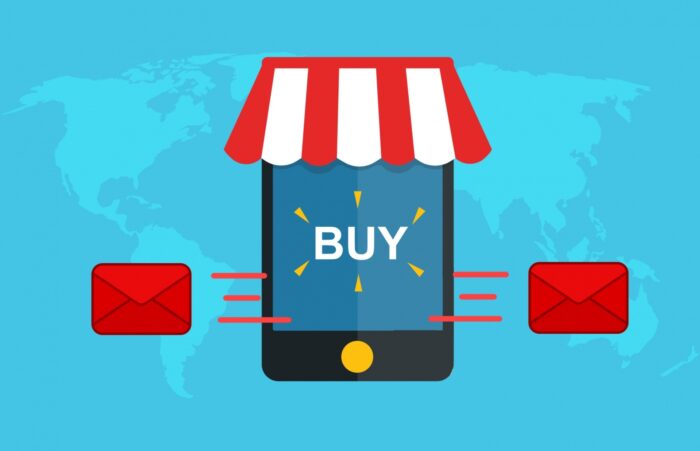 Marketing automation platforms are software tools that assist businesses in automating and streamlining their marketing processes. They allow companies to automate repetitive tasks, such as sending emails, managing social media posts, and generating reports. Marketing automation platforms also offer advanced features such as lead scoring, CRM integration, and A/B testing, which help businesses optimise their marketing efforts and improve their return on investment (ROI).
Marketing automation platforms are software tools that assist businesses in automating and streamlining their marketing processes. They allow companies to automate repetitive tasks, such as sending emails, managing social media posts, and generating reports. Marketing automation platforms also offer advanced features such as lead scoring, CRM integration, and A/B testing, which help businesses optimise their marketing efforts and improve their return on investment (ROI).
Marketing automation platforms have become increasingly popular in recent years due to their ability to reduce manual labor and increase efficiency. They are used by businesses of all sizes and across various industries, including B2B and B2C. In this article, we will explore the benefits of marketing automation platforms, how they work, and what to look for when choosing a marketing automation platform for your business.
Benefits of Marketing Automation Platforms
Marketing automation platforms provide several benefits for businesses, including:
Time-saving: Marketing automation platforms automate repetitive tasks, freeing up time for marketers to focus on strategy and creativity.
Increased efficiency: By automating tasks, marketing automation platforms reduce errors and increase efficiency, resulting in faster turnaround times and a more streamlined marketing process.
Improved lead generation: Marketing automation platforms provide businesses with tools to identify, track, and engage with leads, ultimately resulting in higher-quality leads and increased sales.
Better customer experience: Marketing automation platforms allow businesses to personalize their marketing efforts, resulting in a better customer experience and increased customer loyalty.
Enhanced ROI: Marketing automation platforms provide businesses with detailed analytics, allowing them to track the success of their marketing campaigns and make data-driven decisions that result in a higher ROI.
How Marketing Automation Platforms Work
Marketing automation platforms typically consist of three main components:
Database: This is where customer and prospect data is stored, including contact information, behavioral data, and demographic information.
Marketing automation software: This is the software that automates marketing processes, such as email marketing, social media management, and lead scoring.
Analytics: This is where businesses can track the success of their marketing efforts and make data-driven decisions.
When a user interacts with a business, their data is captured and stored in the database. The marketing automation software then uses this data to automate marketing processes, such as sending personalised emails and social media posts. The analytics component allows businesses to track the success of their marketing campaigns, identify areas for improvement, and make data-driven decisions to improve their ROI.
What to Look for When Choosing a Marketing Automation Platform
When choosing a marketing automation platform, there are several factors to consider, including:
Features: Look for a platform that offers the features that are most important to your business, such as email marketing, lead scoring, and CRM integration.
Ease of use: The platform should be easy to use and navigate, with a user-friendly interface.
Customisation: Look for a platform that allows for customisation, such as the ability to create personalised email templates and landing pages.
Integration: The platform should integrate seamlessly with your existing CRM and other marketing tools.
Analytics: The platform should provide detailed analytics, allowing you to track the success of your marketing campaigns and make data-driven decisions.
FAQs:
Q: What is lead scoring?
A: Lead scoring is a process by which businesses assign a value to leads based on their behavior and demographics. This allows businesses to prioritize leads and focus their efforts on the leads that are most likely to result in a sale.
Q: What is CRM integration?
A: CRM integration refers to the ability of a marketing automation platform to integrate with a business’s existing customer relationship management (CRM) software. This allows businesses to streamline their marketing and sales processes and improve their overall customer experience.
Q: What is A/B testing?
A: A/B testing is a process by which businesses test two variations of a marketing campaign to see which performs better. This allows businesses to optimize their marketing efforts and improve their ROI.
Q: Can marketing automation platforms be used by businesses of all sizes?
A: Yes, marketing automation platforms can be used by businesses of all sizes, from small startups to large enterprises.
Q: How much does a marketing automation platform cost?
A: The cost of a marketing automation platform can vary widely depending on the features and capabilities of the platform. Some platforms offer free plans, while others can cost thousands of dollars per month.
Conclusion:
Marketing automation platforms offer businesses a powerful tool for streamlining their marketing processes, improving efficiency, and increasing their ROI. By automating repetitive tasks and providing advanced features such as lead scoring and A/B testing, marketing automation platforms allow businesses to optimize their marketing efforts and improve their overall customer experience. When choosing a marketing automation platform, businesses should consider factors such as features, ease of use, customisation, integration, and analytics to ensure they choose the platform that best meets their needs.



